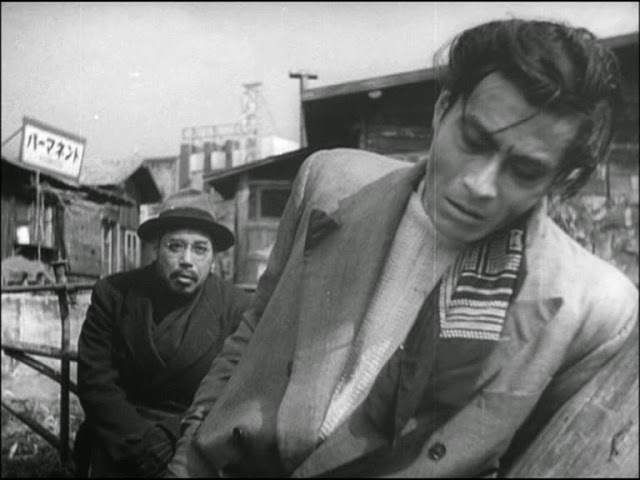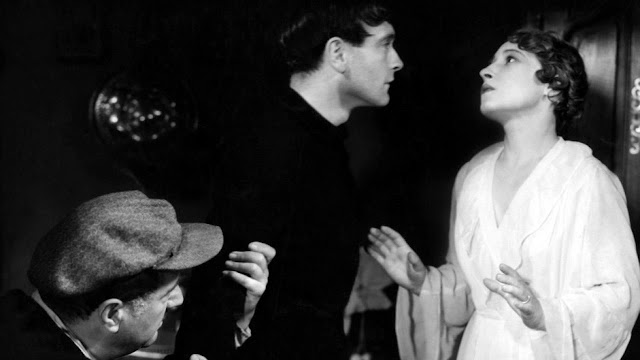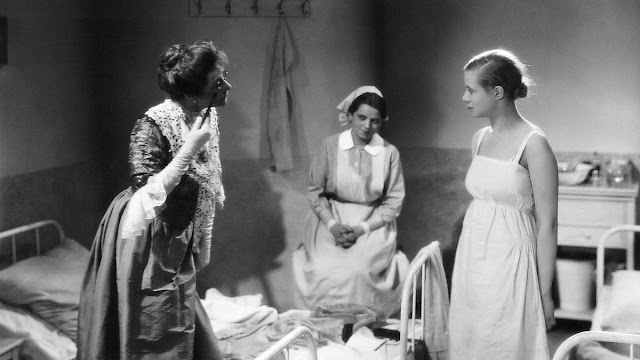Drunken Angel (1948)

Akira Kurosawa's "Drunken Angel" In beginning my new venture into the work of Akira Kurosawa, my first film from his select filmography is perhaps his first major work. The film is considered by many to be a 'noir,' which would not be a consistent style in Kurosawa's work. However, " Drunken Angel " does offer an insightful ignition point into the work of a director and into the psyche of post-war Japan. " Drunken Angel " tells the story of an alcoholic doctor who becomes invested in a yakuza member after a devastating diagnosis. Despite coming to the doctor for a gunshot wound, the doctor uncovers a spot on the lung of the yakuza member, Matsunaga. The doctor, Sanada, wishes to treat Matsunaga, despite Matsunaga's stubbornness. In order to get better, Matsunaga must give up his drinking and smoking. This is turn means he must also give up the yakuza profession he's made for himself and the dangerous and degrading lifestyle. Throu...




